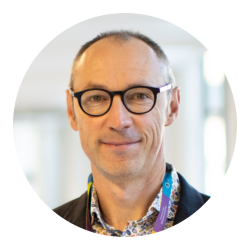Te Whatu Ora ‘listening, working’ on health concerns
Sue Wards
28 April 2024, 5:06 PM
 Local health concerns are being fed into regional and national work programmes, says Te Whatu Ora.
Local health concerns are being fed into regional and national work programmes, says Te Whatu Ora.Health NZ/Te Whatu Ora says it is listening to the community’s concerns about health services in the Upper Clutha and feeding these concerns into work programmes - however the agency has provided few details about these programmes.
Te Whatu Ora Southern Group director of operations Hamish Brown told the Wānaka App it had been a “great opportunity” to be invited to a meeting hosted by the Wānaka Upper Clutha Community Board last month (March 20) which raised concerns about access to local health services such as after hours care.
“Catering for the needs of the growing population of the Upper Clutha District is being considered in terms of what might be needed right now and, in the future, and how best to deliver those services,” Hamish said.
“We are listening to the Wānaka community’s concerns and feeding these into regional and national work programmes.”
The Wānaka App asked Hamish to respond to each of the goals set by newly formed health advocacy group Health Action Wānaka (HAW).
Read more: Clear health goals the target for advocacy group
Within six months, HAW wants delivery of extended (6pm to 8.30am) publicly funded after-hours healthcare for the community; and the opening of Wānaka's primary birthing unit in Albert Town.

Te Whatu Ora Southern Group director of operations Hamish Brown
“The most immediate project for Wānaka is the primary birthing unit and it remains on track to open in mid-2024,” Hamish said.
“We continue to work with our partners on sustainable solutions for after-hours/urgent care services, including ambulance services.”
He added that the rural telehealth service, Ka Ora, was introduced in Wānaka at the end of last year, offering residents “another option” for receiving after-hours care from doctors and nurses (along with the after-hours phone triage service offered by the local general practices).
At the meeting in March Hamish committed to put after hours care in place by winter, and said he would try to get Wānaka’s health designation changed from rural to urban, which would open up alternative funding streams.
HAW has also set a 12 month goal for a publicly funded blood-collection centre in Wānaka; increased resources to reduce wait times to see GPs; improved access to mental health services; and increased ambulance services to manage demand.
“There were many ideas raised [at the meeting] that are being driven by the community with some falling within the scope of Health NZ and some for Hato Hone St John, general practice or the private sector to consider,” Hamish said.
He said access to mental health services has been boosted in recent years through the implementation of the Access and Choice programme.
The programme offers new funding allowing health coaches and health improvement practitioners to work alongside general practice in Wānaka, and further investment in national helplines for those requiring support, he said.
“Other work is underway to put consistent models in place for blood collection across the South Island, along with system design programmes to strengthen workforce, funding and delivery models in aged care, general practice and rural urgent care.”
He did not comment on HAW’s 10 year goal for a fully publicly funded hospital built in Cromwell to service Central Otago and Queenstown Lakes’ growing population.
He said HAW is welcome to contact Te Whatu Ora directly to discuss its goals.
Hamish said Te Whatu Ora will continue “to work with partners across the health system to achieve excellent outcomes for the Wānaka community”.
Read more: Community sends resounding message to health officials
PHOTOS: Supplied







